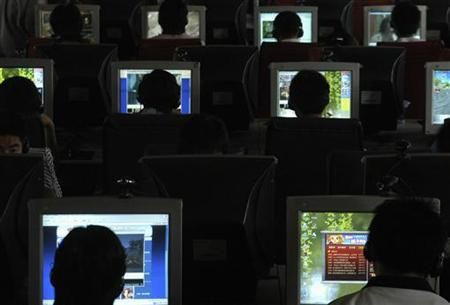CISPA's House Sponsors Realizing Bill Threatens Internet Privacy As SOPA Once Did

CISPA sponsors are realizing the bill a major threat to Internet privacy akin to SOPA, apparently in response to a groundswell of opposition from across the world.
The Cyber Intelligence Sharing and Protection Act is the greatest potential threat to Internet freedom and privacy currently before the U.S. Congress, and many critics have been warning in recent weeks that it has the potential to do even more harm to Internet privacy than the Stop Online Piracy Act and Protect IP Act would have done.
As such, the House is reigning in the bill in order to address some of the privacy concerns that have been raised by the American Civil Liberties Union (ACLU), the Center for Democracy and Technology (CDT), millions of petition-signers and other opponents around the globe.
House members said Tuesday that they will change the language in the bill in order to ensure that it does not limit Internet freedom, privacy and innovation, according to The Hill. Representatives for the CDT say they are glad to see the progress and that they will not oppose the process moving forward in the House, but that they still have a few concerns.
In sum, good progress has been made, CDT said in a statement. The committee listened to our concerns and has made important privacy improvements and we applaud the committee for doing so.
CISPA is expected to be passed by the House of Representatives by the end of the day Friday.
SOPA and PIPA were shelved in January after Internet freedom fighters led by Google, Wikipedia, Reddit and other Web powerhouses participated in an Internet blackout in protest of the bills, eventually leading to Congress shelving both controversial measures.
CISPA is the new SOPA or PIPA in many ways, from the scope and purview of its provisions to the types of groups that are opposing it, say those opponents.
According to supporters, CISPA is, most simply, a cyber security bill. As U.S. Rep. Mike Rogers, R-Mich., a lead sponsor, has said, the bill would help the private sector defend itself from advanced cyber threats.
The bill would provide a new framework for companies and governments to share information collected online with one another in order to fight against cyber attacks, a goal that its sponsors believe is worth pursuing at certain costs.
Co-sponsor Rep. Dutch Ruppersberger, D-Md., says CISPA provides essential tools for repelling online security threats:
Without important, immediate changes to American cyber security policy, I believe our country will continue to be at risk for a catastrophic attack to our nation's vital networks, networks that power our homes, provide our clean water or maintain the other critical services we use every day, Ruppersberger said.
But Internet freedom advocates including the Electronic Frontier Foundation and the Anonymous hacktivist collective have expressed their opposition to the bill, and Anonymous has taken down the websites of USTelecom and TechAmerica in recent days in retaliation for their support of CISPA, according to the RTTNews.com newswire.
These groups worry that the new framework that would be set up under CISPA would be used by government spy agencies to collect private information about private citizens.
One of the amendments being proposed in order to tackle these concerns would limit the scope of when CISPA's provisions could be enacted to cases that concern cyber attacks and crimes, national security threats, violence, theft and child pornography issues. This would help to stop it from being used to target legal free speech that the government may be concerned about that does not seem to indicate a major threat.
Another amendment is aimed at ensuring that companies are more liable for their decisions to hand information over to the government, as well as what information they release, than they would have been under the original bill.
The Electronic Frontier Foundation told The Hill that it cannot comment on the new amendments as it has not yet examined them closely enough to issue a formal response, but it explained its opposition to the bill in a statement released last month:
It's a little piece of SOPA wrapped up in a bill that's supposedly designed to facilitate detection of and defense against cybersecurity threats. The language is so vague that an ISP could use it to monitor communications of subscribers for potential infringement of intellectual property. An ISP could even interpret this bill as allowing them to block accounts believed to be infringing, block access to websites like The Pirate Bay believed to carry infringing content, or take other measures provided they claimed it was motivated by cybersecurity concerns.
CISPA, which has been endorsed by such heavyweights as Microsoft, Facebook and AT&T, is not the only threat to Internet freedom and privacy currently facing Web users the world over, however, as the Anti-Counterfeiting Trade Agreement is before world governments now as well.
A number of countries -- including the United States -- signed the ACTA treaty last year, and the EU and 22 of its 27 member states signed it Jan. 26 in the face of major protests, led by Anonymous.
A proposed agreement that would create an international framework and set of standards for enforcing intellectual property rights, ACTA would create a voluntary legal regime that would allow for copyright and intellectual property cases to be adjudicated across national lines without having to contend with individual nations' conflicting laws.
ACTA would restrict the ability of Web sites to engage in open discourse by placing draconian copyright and intellectual property restrictions in place throughout the world.
And, since the United States, Australia, Canada, Japan, Morocco, New Zealand, Singapore, and South Korea signed the treaty in October 2011, and Mexico and Switzerland declined to sign but indicated that they plan to do so in the future, the momentum is in favor of ACTA supporters.
© Copyright IBTimes 2024. All rights reserved.




















